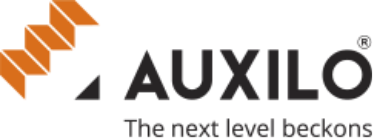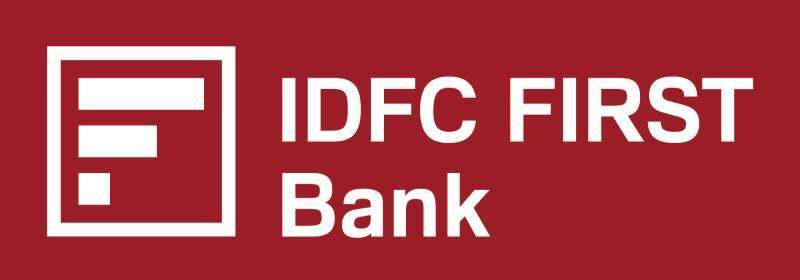
Germany student loan
Discover top international student loan options in Germany
Loan process
Secure Admission
- Secure unconditional offer letter
- Deposit payment to confirm admission
Start Your Loan Journey
- Submit required documents to begin your loan application
- Get funded for tuition fee, blocked account, travel and visa assistance
Get Sanctioned
Get a Sanction Letter from the bank along with approved amount and fund allocation details in it
University Invoice Submission
Submit the University’s Invoice to the bank for payment processing
Disbursement
Tuition fees & blocked account amount transferred transferred by the bank
Visa Application
- Proceed to apply for the German student visa
- Keep Visa application documents and proof handy
Get Subsequent Disbursals
Notify the bank timely and get corresponding funds released
Our Trusted Lending Partners
Get best lender recommendations under 60 seconds!
Find your ideal education loan provider in under 60 seconds with our smart lender match tool!
Find My Best MatchMore information
Germany stands out as an increasingly popular destination for international students, particularly those from India, seeking high-quality education without the burden of exorbitant tuition fees. Its world-class public universities often charge minimal or no tuition, making it an economically attractive choice. While tuition costs may be low, living expenses and other associated costs can be significant. This is where Globcred.Money steps in, simplifying your journey to secure the right education loan for your studies in Germany.
Interest payments begin once the loan is sanctioned thus the borrower has to start paying the interest.
Yes. For unsecured loans, it’s typically 6 months post-course completion.
At Globcred.Money, we connect you with a wide network of leading Indian banks, NBFCs (Non-Banking Financial Companies), and international financial institutions that offer competitive education loans tailored for your German education dreams. We streamline the application process, ensuring you find the best financing solution with ease.
- Are you an Indian Citizen? This loan is specifically for Indian citizens ready to embark on their German academic adventure.
- Got Your Acceptance Letter? You'll need to have secured admission to a recognized university or educational institution in Germany.
- Are You 18 or Older? Applicants should be at least 18 years old.
- Is Your Program Career-Focused? The loan supports students enrolled in job-oriented or professional programs that will help you kickstart your career after graduation.
If you meet these criteria, you're well on your way to exploring your student loan options with Globcred.Money and making your dream of studying in Germany a reality!
- KYC Documents: Aadhar Card, PAN Card, Passport.
- Academic Documents: Mark sheets, admission letter from the German university.
- Financial Documents: Bank statements, income proof (for co-applicant, if applicable).
- Tuition fees (if applicable)
- Blocked account
- Accommodation costs
- Caution deposit / Refundable deposit
- Travel expenses
- Study tours and project work
- Books and stationery
- Miscellaneous expenses
- Public Universities: Generally charge minimal to no tuition fees. You will mainly incur semester contributions (e.g., €100-€350 per semester).
- Private Universities: Tuition fees can range from €25,000 to €40,000 per year, with specialized programs like MBAs and Engineering often being at the higher end.
- Living Expenses: These vary by city but generally average around €900-€1,200 per month. You will also need to show proof of financial means (currently around €11,208 for one year) for your visa application, often through a blocked account.
- Secured Education Loans: These loans require collateral, such as residential property, commercial property, non-agricultural land, or fixed deposits. They typically come with lower interest rates and higher loan amounts.
- Unsecured Education Loans: These loans do not require collateral. Eligibility is primarily based on the co-applicant's income and creditworthiness.
Globcred.Money empowers students to pursue their education in Germany even without tangible collateral. We connect you with lenders who offer unsecured loans based on your academic profile, the university's reputation, and the co-applicant's financial standing. Our streamlined process makes it easier to secure these no-collateral loans.
- Processing Costs: Compare processing fees charged by different lenders.
- Income Tax Exemptions: Inquire about tax benefits available under Section 80E of the Income Tax Act.
- Loan Margin: Understand the percentage of the total cost that the loan will cover.
- Processing Time: Account for the time it takes for loan approval and disbursement.
- Repayment Terms: Review the moratorium period, repayment tenure, and pre-payment options.
- Apply in Advance: Start your loan application well before your university deadlines to avoid last-minute stress.
- Full Financing: We help you secure loans that cover up to 100% of your university fees and living expenses.
- Zero Hidden Cost: Our services are transparent and no hidden cost is charged.
- Immediate Sanctions: We work to get you quick loan approvals.
- Customized Financing: We provide options tailored to your specific financial situation and academic needs.
- Loan Tracking: Our platform allows you to track your loan application status conveniently.
- No-Collateral Expertise: We specialize in facilitating unsecured education loans for eligible students.
- Paperless Approval: We offer a digital-first approach for faster and more efficient processing.
- Engineering
- Computer Science and Information Technology
- Medicine and Healthcare
- Business Administration and Management
- Natural Sciences
- Architecture and Urban Planning
- Language and Cultural Studies
- Environmental and Renewable Energy Studies











